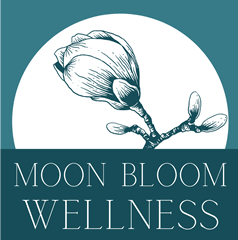Emotional regulation skills are important for maintaining emotional stability. Many people learn how to regulate challenging emotions early on in life, but for those who have not, it is not too late to build emotional regulation skills. Basically, emotional regulation is the ability to exercise control over your emotional state.
Why is emotional regulation important?
When we are not able to manage our emotions in an effective way, there are risks beyond the feelings being experienced in the moment. If emotions are strong and we are not responding skillfully, we may do things like explode on others when we are angry and just generally overreact. This can damage relationships and cause unnecessary suffering for an individual. An emotionally dysregulated individual will likely begin to see instability in other areas of their life, making these skills essential for overall balance.
Learn emotional regulation skills through Online Counseling in New Jersey
Do you feel like you would benefit from building your emotional regulation skills? Contact me to learn more about working together through online counseling in New Jersey.
I now also offer Online Counseling in Pennsylvania, contact me to learn more.
Where does emotional dysregulation typically show up?
Emotional dysregulation can be a characteristic of many psychiatric disorders, such as Borderline Personality Disorder, Post Traumatic Stress Disorder, Autism, and Attention Deficit Hyperactivity Disorder. Challenges with emotional regulation may be rooted in difficult childhood experiences and simply not learning the necessary skills.
Emotional dysregulation can lead to a range of symptoms, including hypersensitivity, self-harm, extreme emotional reactions such as angry outbursts, unexplained illness or pain, poor self-control, passive aggressive behavior and becoming distracted by the negative thoughts and feelings.
How can Dialectical Behavioral Informed Therapy help?
Marsha Linehan developed Dialectical Behavioral Therapy (DBT) to help individuals who self-harm, experience suicidal ideation, or are diagnosed with borderline personality disorder. DBT Informed therapy uses elements of DBT and can help clients build emotional regulation skills. DBT is rooted in mindfulness and acceptance, and focuses on dialectical strategies, which can help clients avoid getting stuck in positions that are extreme. It teaches that two things that seem opposite can both be true.
Some DBT emotional regulation skills…
- Opposite Action – if you are prone to reacting to emotions in an extreme way, such as fighting, opposite action skills help you learn to react in the opposite way. So, instead of fighting, your goal might be to choose to engage calmly.
- P.L.E.A.S.E. – this is an acronym that stands for Treat Physical Illness, Eat Healthy, Avoid Mood Altering Drugs, Sleep Well, and Exercise. Each word represented in this acronym helps individuals to manage their health, which impacts emotions.
- Check the Facts – mentally revisiting a situation to assess what actually happened can be helpful in reducing intensity of emotions. When someone is dysregulated, in the moment they are often perceiving the situation as being worse than it was. Checking the facts will help individuals to see whether their reaction matched what was happening in that situation.
- Pay Attention to Positive Events – this skill involves noticing the positive aspects of your life, as well as adding in more positive activities in order to create more positive experiences.
Sarah Tronco, LCSW, provides online counseling in New Jersey and works to develop a strong therapeutic relationship with her clients, which helps to create a secure place where individuals can achieve meaningful change.
Sarah Tronco, LCSW, now also provides Online Counseling in Pennsylvania, contact her to learn more.
Photo by Court Cook on Unsplash

